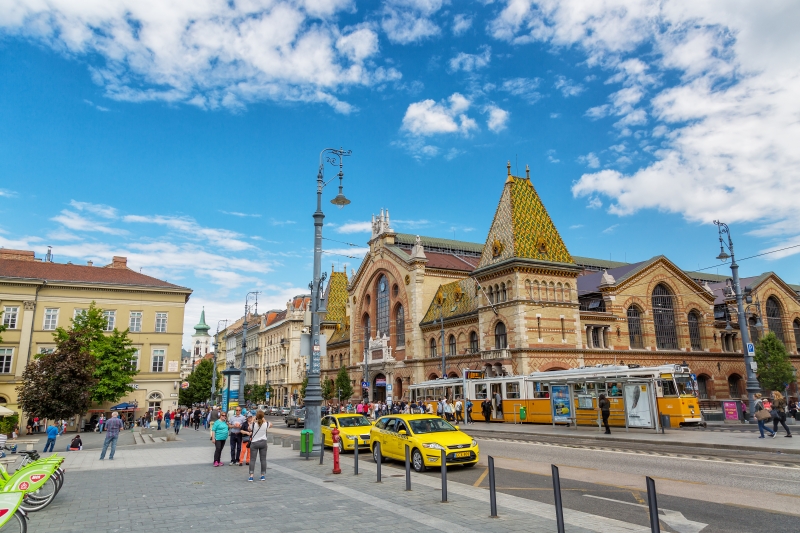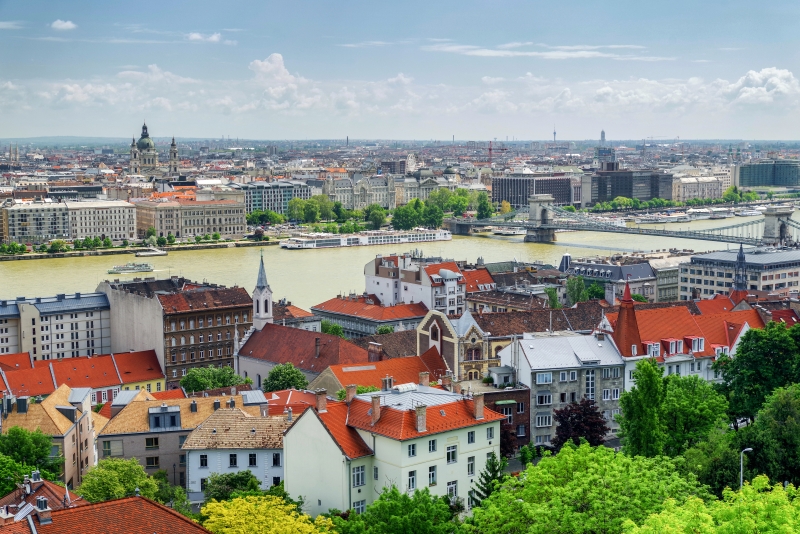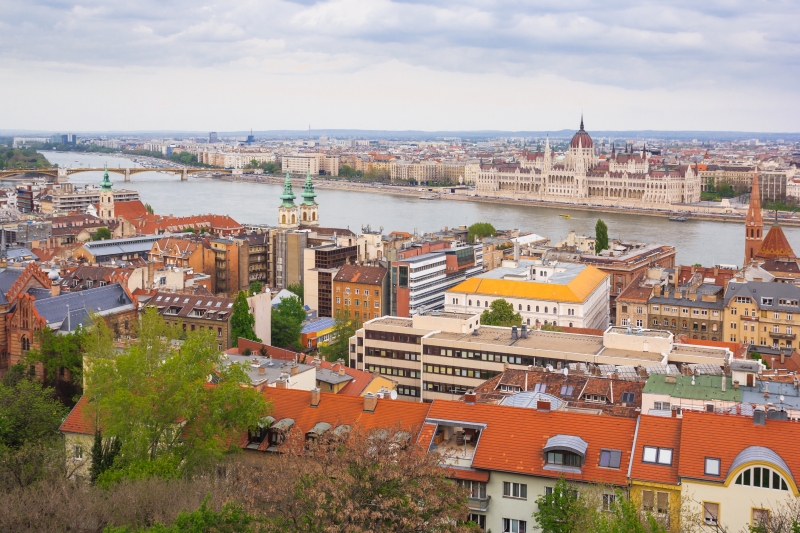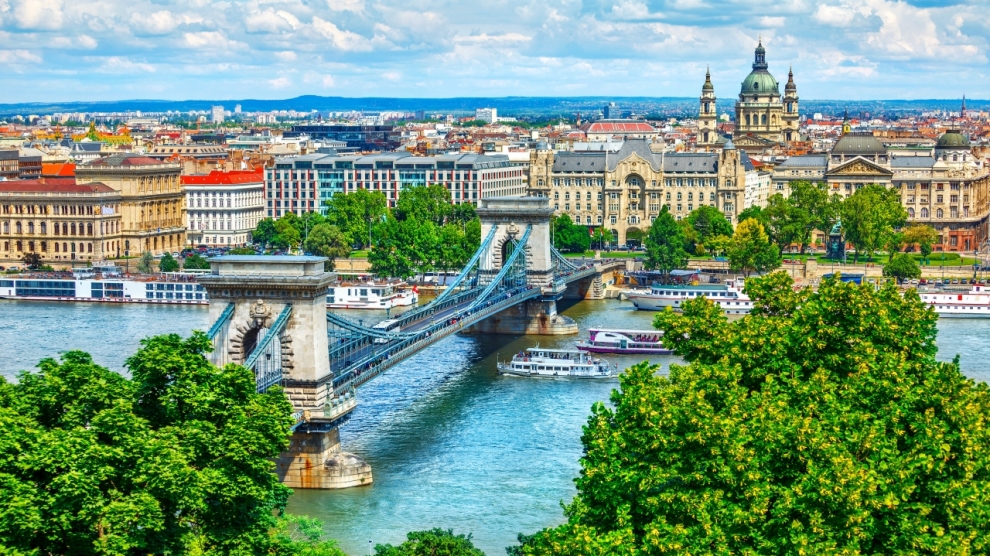Prime Minister, Viktor Orbán, demands that the European Union refund 400 million euros, which is half the cost of Hungary’s border defence measures, in return for “protecting all the citizens of Europe from the flood of illegal migrants.”
“If we talk about European solidarity, then we must also discuss the protection of borders. Solidarity must be applicable there, too. That burden must also be shared,” says PM Orban’s chief of staff, János Lázár.
The Bear’s advocate?
At the same, the term ‘solidarity’ seems to be understood differently by the EU and the European Court of Justice, which dismissed complaints from Hungary and Slovakia about refugee quotas.
“[Solidarity] is not some sort of an à la carte menu where you pick one dish, for example, border management, while refusing another dish, such as … relocation [of refugees]” said Alexander Winterstein, spokesperson for the European Commission.
However, the razor wire fence seems to be less controversial than other actions taken by Mr Orbán this year. These include the recent law targeting the education system, the new NGO’s regulation and his increasingly Russian-oriented policy.
“Orbán’s political slogan has always been strengthening Hungary’s sovereignty. But there is more and more evidence that he is working with Putin. In the case of the law targeting the Central European University, Orbán alienated the intellectuals. What’s the point? Fidesz represents Moscow, the opposition now represents the EU,” Krisztian Szabados, co-founder of Political Capital, a policy research, analysis and consulting institute, tells Emerging Europe.
“Fidesz is copying Putin’s policy through and through. The same techniques; the same goals. It is creating a regime where the power of the main party and its leader cannot be challenged. The 2018 elections will be the last chance to invert this process. If Fidesz wins again, the transformation to a Russian-like policy will be completed,” Mr Szabados adds.
The next parliamentary elections are planned for the spring of 2018. The opposition — Gábor Vona and his Jobbik party, and László Botka, leader of the Socialist Party, do not work together so it seems that only LMP (the Green party) and the new political player, Momentum, could possibly change the otherwise quite predictable upcoming elections.
All things considered, Hungary’s economy is growing relatively quickly. According to Eurostat, in Q2 2017 the economy increased by 3.6 per cent, year-on-year. As far as foreign direct investment is concerned, there is room for improvement. The UNCTAD World Investment Report 2017 says the inward FDI stock amounted to 77.7 billion US dollars and was 28.4 per cent lower than in 2013.
“Nowadays, investors do not simply regard Hungary as an ideal production location, but also as a remarkably advanced manufacturing and innovation centre in Europe,” Róbert Ésik, president of the Hungarian Investment Promotion Agency (HIPA), tells Emerging Europe.

A digital powerhouse
According to the SSC Benchmark Survey, run by the Hungarian Outsourcing Association (HOA), the sector employed 26,246 individuals, 21 per cent more than in 2015, in 41 major Hungarian shared service centres (SSC) and outsourcing companies.
“This trend is in line with Hungary’s intention to further increase the number of investments, and offers three things: a favourable and attractive taxation and financial environment, an adequate supply of workers in the labour market and a digital environment that meets today’s requirements. Based on the results of the first half of 2017, in terms of job creation, shared service centres (SSCs) and development centres are creating high added value, and are among the most dynamically growing and developing sectors in the domestic economy,” HIPA’s Mr Ésik adds.
“Thanks to infrastructural development and the improving business climate, more and more corporations are deciding to establish an SSC in Hungary,” says Zoltán Szabó, CEO at British Telecom in Hungary.
“These centres, and other sector’s investments, are also generating higher value-added jobs, which helps to develop the current talented, experienced workforce. The IT sector is all about the up-to-date knowledge which helps to grow this sector further in Hungary. More inventions, and even start-ups, are moving the sector, where our country is getting better and better, forward,” he adds.
American GE, which has been operating in Hungary for the last 27 years, created 2,500 additional jobs in the last two years alone.
“In Hungary we are focusing on creating high added-value positions across our operations. Budapest is the home for our key global and European functions and R&D activities. Among others things, it hosts our Global Operations Centre for Europe, our global competence centre for medical image processing and one of our six global Digital Hubs responsible for developing Internet of Things solutions,” Joerg Bauer, president at GE Hungary, tells Emerging Europe.
He adds that the company is now planning on developing its future in digital manufacturing, services and healthcare and pulling up the whole local eco systems of suppliers, universities, start-ups and public stakeholders to the next level of industry 4.0, the industrial internet.

Using the potential
According to GE, Hungary’s digital industry is quite advanced. About 22 per cent of global GDP can be attributed to digital skills, capital and goods or services, compared to 23.5 per cent in Hungary. At the same time, the OECD’s statistics says that Hungary spends 1.38 per cent of its GDP on research and development (R&D), which is lower than the EU average of 2.03 per cent. Amongst Poland, Hungary, Slovakia and the Czech Republic, only the latter is close to that figure.
“A lot of international companies that are investing in Hungary from abroad are applying digitisation — high-performance enabling technologies, sustainable manufacturing technologies or IT-enabled intelligent manufacturing — to their facilities. However, the Hungarian SME’s sector lags behind international companies in adapting to the new technologies. R&D spend should definitely be increased, otherwise the potential in our country remains under-utilised,” GE’s Mr Bauer adds.
“Due to the technological, industrial and social transformation, human resources have become key points of success. Foreign investors are mainly interested in the availability of a labour force that is adequate to implement their plans,” says HIPA’s Mr Ésik.
“The country probably has the best talent to leverage on digitalisation, but may not have the capacity do so since, at present, around 20,000 IT specialists are missing on the Hungarian labour market. Additionally, in 2016, the number of students applying for the IT faculties of universities decreased sharply, to less than 5,000 students,” says GE’s Bauer.
Artificial intelligence (AI) and the development of new technologies are, and will be, crucial for all businesses in the future.
“We have already started to invest in new technologies which will enable us to conduct data analysis or documentation reviews for due diligence, arbitration or litigations cases within seconds,” says Gabriella Ormai, managing partner at CMS Hungary.
BT’s Mr Szabó claims that dynamic growth requires immediate action and prompt recruiting.
“We had a period when, in 18 months, we had to hire more than 1,000 employees. This high number of people was required to fit the high standards which were set by BT and hiring in this number was definitely a challenge,” he adds.
Overcoming challenges
According to the Hungarian National Bank (MNB), tight labour market conditions can be one of the main challenges for the Hungarian economy.
“Due to declining free labour capacities, increasing wage competition is emerging, both between companies and sectors. Increases in the minimum wage and the guaranteed minimum wage also contribute to the higher wage dynamics, but the upward effect of these on costs is being partly offset by the reduction in employers’ social contributions and in the corporate income tax rate,” says László Szentes, a spokesperson at the MNB.
At the beginning of 2017, the corporate income tax rate was lowered to nine per cent and is officially the lowest in Europe.
“As far as fiscal policy is concerned, the improvement is significant indeed compared to earlier years, however it comes at a high price: one of the highest VAT rates (27 per cent) in the EU, radically hardened conditions in several social benefits, the elimination of a modernised pension scheme a few years ago and under-financing of education and health,” Sandor Richter, a research economist at the wiiw, tells Emerging Europe.
“Hungary is a small open country, so its economy and financial markets could respond sensitively to the changes of the global environment,”MNB’s Mr Szentes tells Emerging Europe. “However, external vulnerability has significantly decreased in the last several years. This is supported by favourable macroeconomic changes and the measures introduced, such as prudent fiscal policy, high current account surplus, decreasing net and gross external debt because of the MNB’s self-financing programme and the conversion of FX loans,” he adds.
“The decrease of external vulnerability is positive, in as much as domestic actors play a larger role in financing the budget, and foreign actors have purchased more HUF denominated bonds than in earlier years. Nevertheless there is a strong dependence on the EU’s cohesion policy support which has replaced old dependences,” wiiw’s Mr Richter says.

Rethinking the future
The Hungarian National Bank says Brexit might have an indirectly negative impact through market sentiment channels on the Hungarian economy.
“Brexit is an unprecedented event, and as such it is very hard to predict the short and long-term implications on trade, at this point. What we know is that more and more emphasis will be placed on bilateral relationships and synergies,” says Vazul Tóth, chairman of the British Chamber of Commerce in Budapest.
However, before Hungary can work on the details of its future collaboration with the UK, it could perhaps reconsider its relations with the EU. Together with Poland, the country rejects prospects for deeper EU integration. At the same time, Czech, Slovak and Romanian officials want their countries to remain close to the “core” of major Eurozone powers, led by Germany and France, and to be part of their discussion on the future of the bloc.

